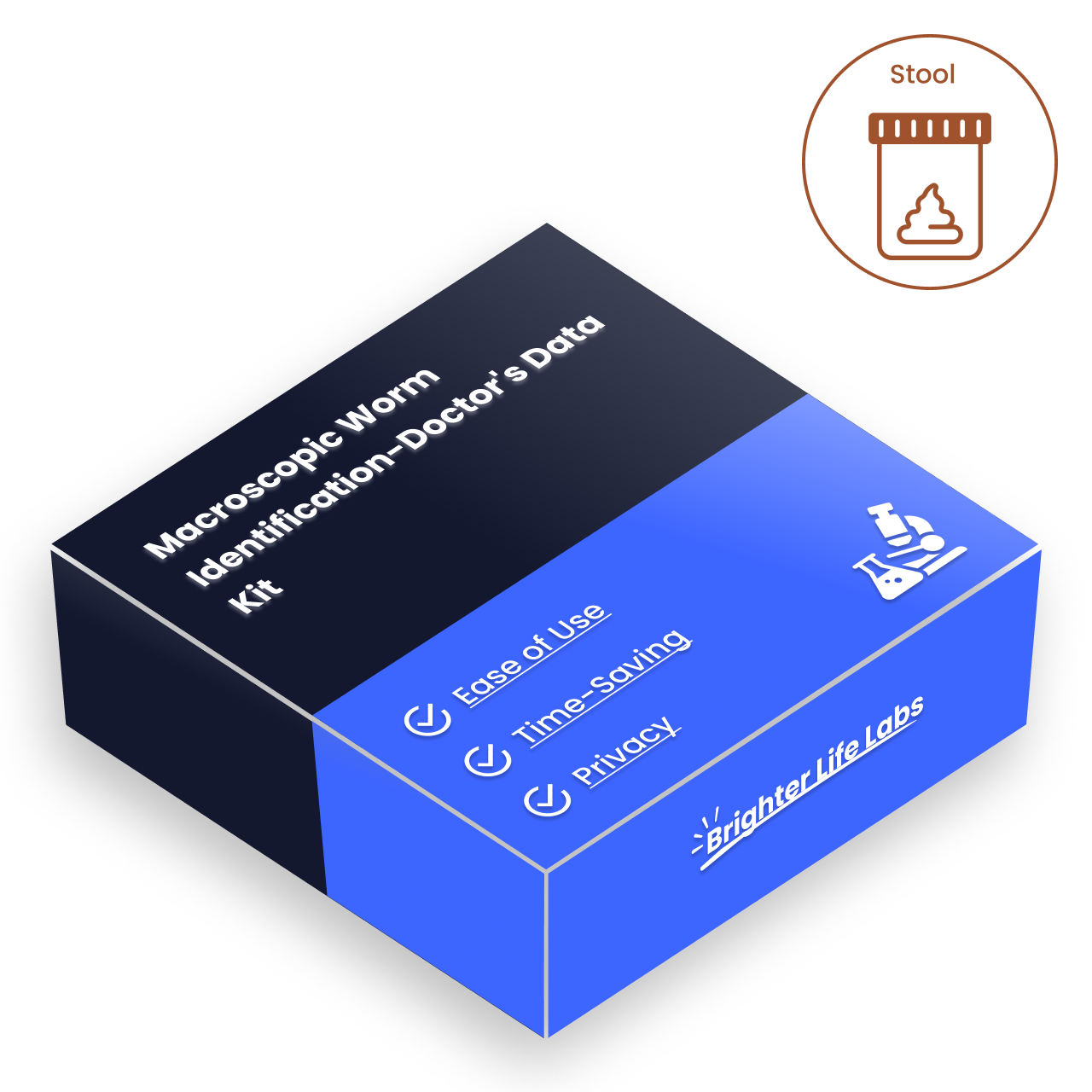1
/
of
1
Doctor's Data
Macroscopic Worm Examination-Doctor's Data Kit
Macroscopic Worm Examination-Doctor's Data Kit
Regular price
$144.00 USD
Regular price
Sale price
$144.00 USD
Unit price
/
per
Shipping calculated at checkout.
Couldn't load pickup availability
Note: This is a home collection test kit that will be mailed to you.
This test is a visual review for the presence of ova and parasites.
Fasting Required:
No
Lab:
Doctor's Data
Specimen:
Stool
Results:
Average processing time 10-14 business days
Note: Result turnaround times are an estimate and are not guaranteed. Our reference lab may need additional time due to weather, holidays, confirmation/repeat testing, or equipment maintenance.
Special Instructions:
Send in your samples as soon as you complete the test. Store samples at room temperature or refrigerate. Do NOT freeze. The following are interfering substances and should be discontinued unless directed otherwise by your physician: bentonite clay, castor oil, mineral oil and rectal suppositories. If you are taking a medication that isn’t listed as an interfering substance, ask your healthcare professional before stopping any prescribed substance. We do not suggest collecting during an acute infectious illness. Wait at least 4 weeks from colonoscopy or barium enema before beginning the test. If you are taking antifungal or antibiotic medications, please finish the course of medication, and then wait at least 14 days after your last dose before beginning this test (unless instructed otherwise by your physician). Eat your usual diet during the 2 – 3 days prior to the stool collection.
Description:
Signs and symptoms of parasitic infection vary from one individual to another. The more common signs and symptoms are: constipation, diarrhea, bloating, gas, symptoms of irritable bowel syndrome, arthralgias, myalgias, anemia, increased allergic reactions, skin lesions, agitation and anxiety, difficulty sleeping, decreased energy, malnutrition and decreased immune function. Infection can occur by four different pathways. These routes include:
- Contaminated food or water
- Insect vectors
- Sexual contact
- Passage through the skin and nose
- Contamination of the water supply
- Increased use of daycare centers
- Increased travel to, and visits from, countries where parasitic infection is endemic
- Household pets
- Consumption of exotic and uncooked foods
- Antibiotic use
- Changing sexual partners
Share


